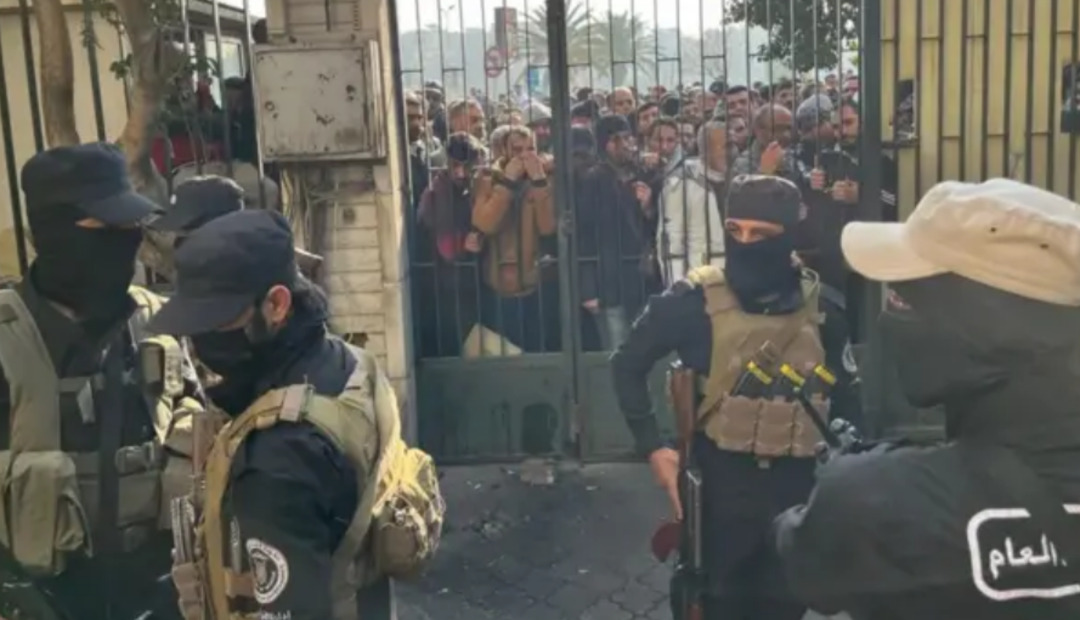-
The Suffering of Syrian Prisons: Continued Violations and the Hope for Justice

Despite changes in leadership and slogans in Syria, the prison walls still carry the same pain, and the cry of detainees continues to echo as it did during previous eras of authority. The practices that characterized the Assad regime’s prisons, especially Sednaya Prison, remain present in various forms arbitrary detention, enforced disappearance, torture, mistreatment, and the absence of fair trials.
Sources close to the Syrian Observatory for Human Rights confirm that military prisoners within the cells of the “Transitional Government” are subjected to serious violations that violate basic human rights standards, including physical and psychological torture, beatings, insult, humiliation, and deprivation of healthcare and food.
According to these sources, around 8,000 detainees remain missing inside the prisons of the “Transitional Government” in Hama, Homs, Adra, Harim, Afrin, and Rajo, for more than ten months, without clear charges or fair trials.
In a painful testimony obtained by the Observatory, the wife of one detainee described visiting her husband inside one of the detention cells, calling the prison a “new Sednaya,” pointing to the previous regime’s prison that symbolized violence and years of enforced disappearance. She explained that those released “through mediations between families” still have not received any legal papers or identity cards, making them vulnerable to re-arrest at any moment. Many former detainees also fear going to government offices in Latakia to settle their status or hand over their IDs, out of fear of arrest. Their families are also under direct threats from communicating or disclosing any information about their loved ones who remain under oppression and torture.
The wife also received a message informing her that she could visit her husband in Hama after his transfer from Homs prison. She described the situation there as “tragic and inhumane.” Her husband appeared exhausted, with his head fully shaved, and was suffering from severe health deterioration and significant weight loss.
He told her that the last month of his detention had been the hardest, and he could no longer endure the conditions, especially with the judiciary’s silence and the international community’s lack of intervention to save the prisoners’ lives.
Her urgent plea calls on international organizations and concerned authorities to swiftly intervene to save the lives of detainees, stop ongoing violations, and ensure their fundamental rights to life, justice, and medical care.
These violations come amidst increasing fears of killings under torture inside the prisons, as well as concerns over the issue of the disappeared, which has intensified since the fall of the previous regime on December 8, of last year. The list of missing persons includes officers and soldiers who surrendered peacefully in safe zones during unspecified battles, civilians detained at security checkpoints with their fate concealed from their families, former fighters against ISIS in the Syrian Badia, and those repatriated from Iraq—people who had no direct conflict with security forces.
The Observatory reiterates its urgent call to open prisons to international human rights missions, to ensure independent and transparent oversight of detainees’ health, legal, and humanitarian conditions, and to initiate fair trials for those who are accused. The observatory also emphasizes the importance of releasing all detainees who have not committed any bloodshed and condemns the concealment of the names and locations of detainees and prisons.
You May Also Like
Popular Posts
Caricature
opinion
Report
ads
Newsletter
Subscribe to our mailing list to get the new updates!






















